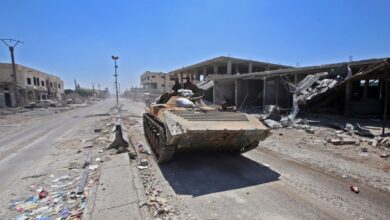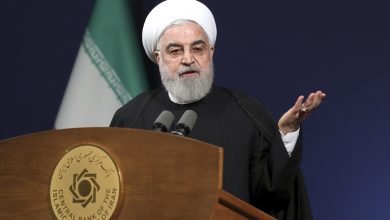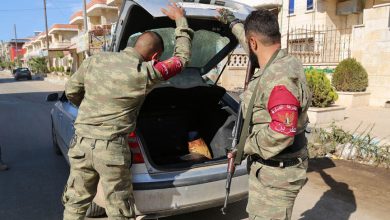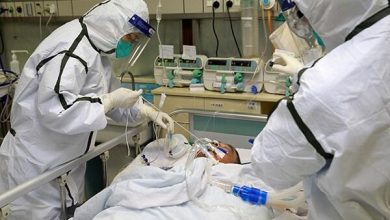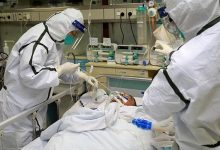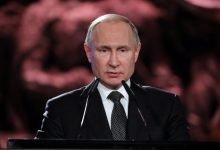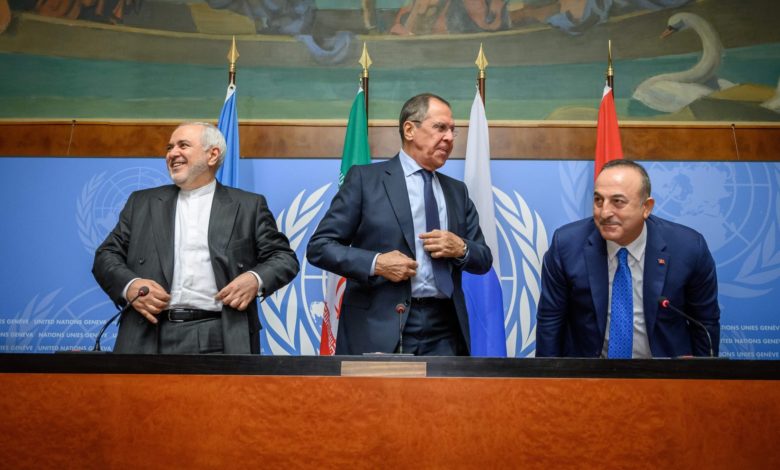
Russia underscored its role in the political future of Syria as the Moscow-backed Syrian constitutional committee met for the first time under UN auspices to chart a political settlement to end the eight-and-a-half-year civil war.
The meeting – a key proposal from Moscow – in Geneva is being overseen by the UN special envoy for Syria Geir Pederson with expectations low that the Syrian government, in an increasingly strong military position, will see the need to make any major political concessions to secure western recognition.
The talks are being held against the backdrop of fresh fighting in north-east Syria between the Syrian army and Turkish-backed troops.
The clashes took place near the border town of Ras al-Ayn on Wednesday, Syrian state media reported, as Ankara warned it reserved the right to launch another cross-border offensive against Kurdish forces in the region.
But in a sign of Russia’s influence, the government and some of the opposition delegation arrived in Geneva on a Russian-chartered plane.
The aim of the meeting is to agree a new constitution for Syria, but it is unclear if this will mean redrafting the existing constitution, written in 2012, or starting from scratch.
No deadline has been set for the end of talks, but Pedersen has said all sides had promised to work expeditiously.
Speaking at the opening ceremony in Geneva, the Syrian opposition co-chair, Hadi al-Bahra, said: “The memory of 1 million victims must guide us out of this dark tunnel.” He added: “It is time for us to believe that victory in Syria is achieving justice and peace, not winning the war. We must respect the right of families to know the fate of their loved ones.”
He pointed out that 65% of Syrian infrastructure had been destroyed since the war started – compared with the 60% that had been destroyed in Germany in the second world war – and that half the country’s population had been displaced or had become refugees.
He said the outcome had to ensure the sovereignty, independence and territorial integrity of Syria, alongside the rejection of any direct or indirect interference in Syrian affairs.
Pederson, sitting between the two chairs, acknowledged it was hard for the 150 people to be in the same room, but the very fact the meeting was happening could be considered a sign of hope.
Previous Syria peace talks in Geneva foundered over a Russian unwillingness to press the negotiating team of President Bashar al-Assad to engage, but the current process is a largely Russian construct, and the most senior Russian diplomat on Syria, Alexander Lavrentiev, has been preparing the ground.
Donald Trump, by withdrawing US troops from north-east Syria, has reduced the little remaining leverage Washington possessed at the talks.
Russia first proposed a 150-strong committee in January 2018 at a meeting in the Black Sea resort of Sochi, and the idea was implicitly seen as Moscow’s alternative to the UN’s brokerage.
The committee has 50 Syrian government delegates loyal to the Syrian president,, 50 members of the Syrian opposition largely supported by Turkey and Saudi Arabia, and 50 civilian representatives. Disputes between the regional powers over the composition of the civilian group, some still unresolved, held up the committee being announced until September.
The weakened opposition team is a coalition of at least five different platforms and has nominated Hadi Bahra as co-chair for the committee. Bahra said his side had already prepared a draft constitution, adding that he believed the negotiations need not last longer than two to six months.
A smaller tripartite 45-strong committee is due to undertake the detailed drafting of the constitution.
The talks – the fourth attempt to end the war through negotiation – face myriad obstacles and Pedersen has played down the prospect of a breakthrough. One difficulty is that the committee must adopt resolutions either by consensus or with a 75% majority, seen by some as a recipe for paralysis.
Although seven Kurds are on the committee, the political wing of the Kurdish Syrian Democratic Forces in north-east Syria has been excluded. The Kurdish Syrian autonomous administration objected to the exclusion on Monday.
Deserted by their former allies, the US, the YPG has been forced to start Russian-brokered talks to form a military deal with Assad’s forces. Assad in the past has opposed a federated Syria with an semi-autonomous Kurdish province.
Assad’s foreign minister, Walid al-Muallem, has already warned that “the hostile Turkish incursion into north-east Syria seriously threatens the work of the constitutional committee”.
There is intense pressure on the Syrian opposition to recognise the weakness of their position and scale back their demands. They have already complained the committee’s remit abandons previous vital commitments in UN resolutions to form a transitional governing body within six months, release detainees and provide information on missing persons.
Pederson, like his predecessor, Staffan de Mistura, is searching for positives, pointing out that the committee – with terms of reference and core rules of procedure – marks the first political agreement between the government of Syria and the opposition.
The committee also commits the government and the opposition, and their nominees, to sit together face-to-face in dialogue and negotiations.
Source: The Guardian


